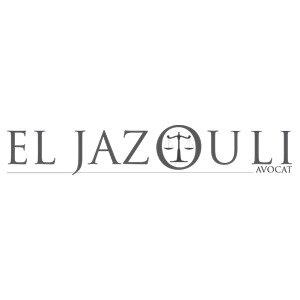Best Trusts Lawyers in Marrakesh
Share your needs with us, get contacted by law firms.
Free. Takes 2 min.
List of the best lawyers in Marrakesh, Morocco
About Trusts Law in Marrakesh, Morocco
Trusts are a legal arrangement in which a person (the trustor) transfers assets to another person or entity (the trustee) to hold and manage for the benefit of one or more beneficiaries. Trusts in Marrakesh, Morocco are governed by specific laws and regulations that dictate how they are established, managed, and dissolved.
Why You May Need a Lawyer
Seeking legal advice for trusts in Marrakesh, Morocco may be necessary in situations where you need assistance with establishing a trust, understanding your rights as a beneficiary, managing trust assets, or resolving disputes related to a trust. A lawyer can provide guidance and ensure that your interests are protected under the law.
Local Laws Overview
In Marrakesh, Morocco, trusts are primarily regulated by the Civil Code and specific provisions related to trusts. Trusts must be carefully drafted to comply with local laws, and any deviation from legal requirements can invalidate the trust. It is crucial to work with a knowledgeable lawyer to navigate the complexities of trust law in Marrakesh.
Frequently Asked Questions
1. What is a trust and how does it work in Marrakesh, Morocco?
A trust is a legal arrangement where assets are transferred to a trustee to manage for the benefit of beneficiaries. Trusts in Marrakesh must be established in compliance with local laws to be valid.
2. How can I establish a trust in Marrakesh, Morocco?
To establish a trust in Marrakesh, you must draft a trust deed outlining the terms and conditions of the trust, appoint a trustee, and transfer assets into the trust. It is advisable to seek legal assistance to ensure that the trust is properly set up.
3. What are the duties of a trustee in Marrakesh, Morocco?
Trustees in Marrakesh are required to manage trust assets prudently, act in the best interests of beneficiaries, and comply with the terms of the trust deed. They must also keep accurate records and provide periodic reports to beneficiaries.
4. Can a trust be challenged in Marrakesh, Morocco?
Trusts in Marrakesh can be challenged on various grounds, such as lack of capacity of the trustor, undue influence, or fraud. If you believe a trust is invalid, you may seek legal recourse to challenge it in court.
5. How are trust assets distributed in Marrakesh, Morocco?
Trust assets are distributed according to the terms of the trust deed. Beneficiaries are entitled to receive their share of the trust assets as specified in the trust document, and the trustee is responsible for executing the distribution in accordance with the law.
6. What happens if a trustee breaches their duties in Marrakesh, Morocco?
If a trustee in Marrakesh breaches their duties, beneficiaries may take legal action against the trustee to hold them accountable. Remedies for breach of trust may include removal of the trustee, restitution of trust assets, and damages for losses incurred.
7. Can I amend or revoke a trust in Marrakesh, Morocco?
Trusts in Marrakesh can usually be amended or revoked by the trustor as long as the trust deed allows for such modifications. It is recommended to seek legal advice before making any changes to a trust to ensure compliance with the law.
8. Are there any tax implications for trusts in Marrakesh, Morocco?
Trusts in Marrakesh may be subject to certain tax obligations, such as income tax on trust income or inheritance tax on trust assets. It is advisable to consult with a tax advisor or lawyer to understand the tax implications of trusts in Marrakesh.
9. How can I protect my interests as a beneficiary in Marrakesh, Morocco?
As a beneficiary of a trust in Marrakesh, you have legal rights to ensure that the trustee fulfills their duties and that you receive your rightful share of the trust assets. Consulting with a lawyer can help you protect your interests and enforce your rights as a beneficiary.
10. What should I do if I have a dispute related to a trust in Marrakesh, Morocco?
If you have a dispute related to a trust in Marrakesh, such as disagreements with the trustee or other beneficiaries, it is advisable to seek legal assistance to resolve the matter. A lawyer can guide you through the dispute resolution process and help you achieve a favorable outcome.
Additional Resources
For more information on trusts in Marrakesh, Morocco, you may consider contacting the Moroccan Bar Association or the Ministry of Justice for legal guidance and resources related to trusts law. Additionally, seeking advice from experienced trust lawyers and legal professionals can provide valuable insights and assistance with your specific trust-related needs.
Next Steps
If you require legal assistance with trusts in Marrakesh, Morocco, it is recommended to schedule a consultation with a qualified trust lawyer who can assess your situation, provide personalized advice, and help you navigate the legal complexities of trusts law in Marrakesh. Taking proactive steps to seek legal guidance can ensure that your interests are protected and that your trust-related matters are handled effectively and in compliance with the law.
Lawzana helps you find the best lawyers and law firms in Marrakesh through a curated and pre-screened list of qualified legal professionals. Our platform offers rankings and detailed profiles of attorneys and law firms, allowing you to compare based on practice areas, including Trusts, experience, and client feedback.
Each profile includes a description of the firm's areas of practice, client reviews, team members and partners, year of establishment, spoken languages, office locations, contact information, social media presence, and any published articles or resources. Most firms on our platform speak English and are experienced in both local and international legal matters.
Get a quote from top-rated law firms in Marrakesh, Morocco — quickly, securely, and without unnecessary hassle.
Disclaimer:
The information provided on this page is for general informational purposes only and does not constitute legal advice. While we strive to ensure the accuracy and relevance of the content, legal information may change over time, and interpretations of the law can vary. You should always consult with a qualified legal professional for advice specific to your situation.
We disclaim all liability for actions taken or not taken based on the content of this page. If you believe any information is incorrect or outdated, please contact us, and we will review and update it where appropriate.









